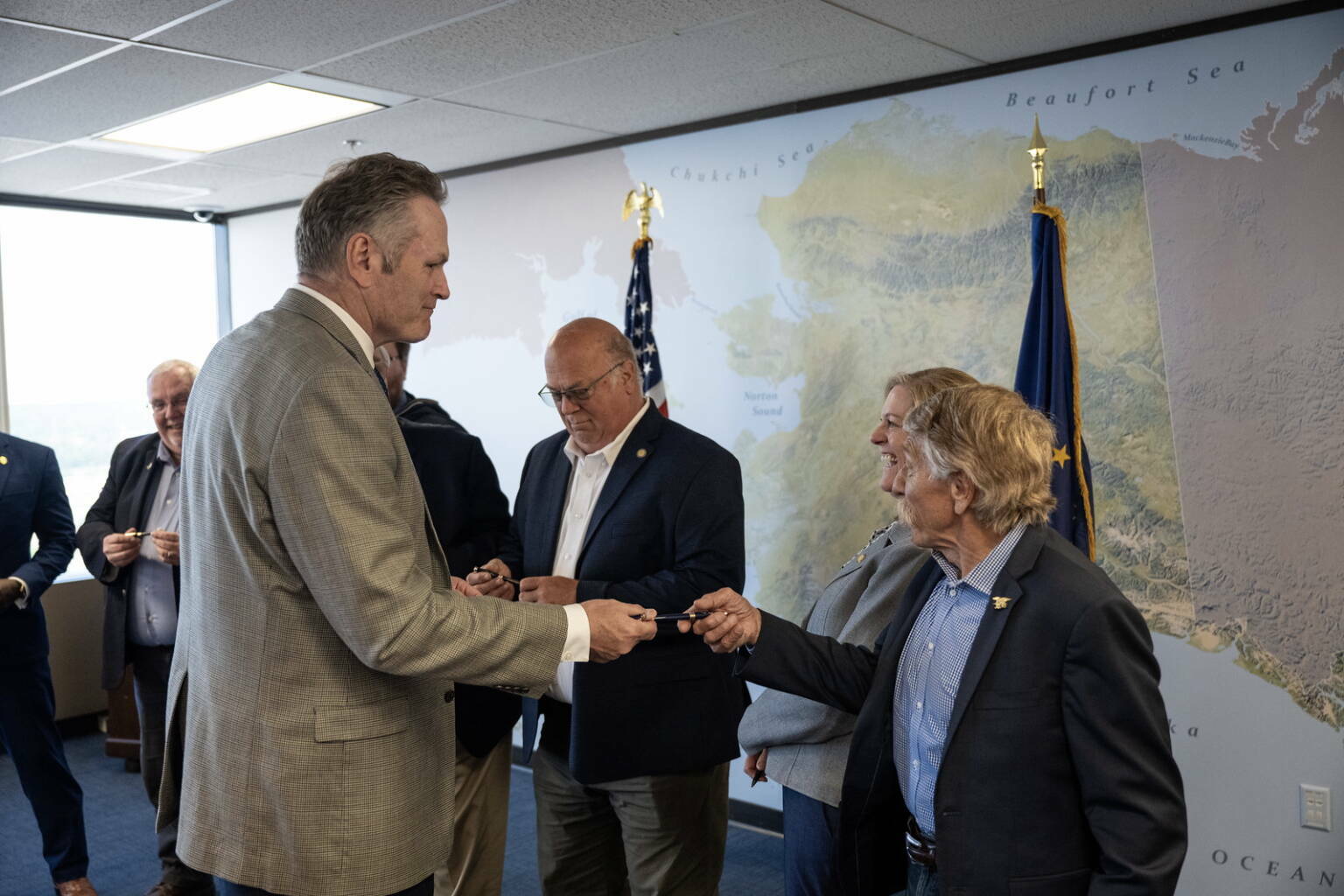Gov. Mike Dunleavy has long prided himself on being a fiscal conservative. He has consistently adhered to that mantra, with the exception of his long-standing advocacy for a state checkbook-draining supersize Permanent Fund dividend.
As a fiscal conservative, the governor has always talked of keeping a short leash on spending, a tight rein on appropriations, a firm grip on the budget.
Too bad that stinginess extends to explaining his budget vetoes.
Critics of Dunleavy’s vetoes of legislative appropriations for the state fiscal year that started July 1 have been more vocal of late as they focused on the cuts, tried to adapt and grown frustrated at the lack of explanation from the governor’s office.
The governor took the budgetary management equivalent of the Fifth Amendment about 160 times in his veto spreadsheet: “Preserve general funds for savings and fiscal stability.” Other than providing details for a very few of his vetoes, those eight words were all that he wrote — over and over and over. Thank goodness for the copy-and-paste feature in spreadsheets.
He credited “the framers of Alaska’s Constitution” for guiding him. “This budget reflects their intentions” of responsible budgeting, Dunleavy said in announcing his vetoes and patting himself on the back for “maintaining focus and fiscal discipline.”
The governor said in his veto message that the cuts “resulted from a thorough evaluation and consistent application of the priorities of the Dunleavy administration.” Which I guess means somebody really thought through all of the legislative appropriations and made decisions on the merits of each item.
Must be a secret formula of “fiscal stability,” because the administration isn’t sharing much detail of those “thorough” evaluations.
Such as the evaluation that led to a veto of $5.2 million in state funding to support the year-old Alaska READS Act and its goal of improving the reading skills for kids in grades K-3. The governor’s office merely said school districts can use other money for reading programs.
Must have been a pretty convincing evaluation to veto money to recruit more snowplow drivers and set up a new snow storage site in Southcentral Alaska, where snow has been as deep in recent winters as rain is endless in Southeast.
There was a veto of $10 million that would have bolstered Alaska seafood marketing efforts to counter weak markets, low prices for commercial fishers and processor closings in the state. The governor’s office said the seafood marketing agency could try again next year, but that means another year lost in the competitive marketplace.
And why veto a $200,000 increase for Alaska Legal Services Corp., which provides free legal help for low-income people, particularly victims of domestic violence.
A lot of social services were on the veto list, including the Head Start early education program, vocational programs at state prisons and adult day care services.
No doubt many of the governor’s vetoes were responsible spending decisions. The Legislature is far from perfect in its appropriations, and the constitution does provide the governor with a strong hand to protect the state treasury.
In total, the vetoes were about 3% of total state general fund spending. Not a massive number, not a large-scale gutting of the Legislature’s spending plan. But it’s not the dollar amount that matters — it’s the shortage of details, of not sharing those “thorough evaluations.”
Copy-and-paste answers are inadequate for schoolwork and woefully insufficient for budget work.
Larry Persily is the publisher of the Wrangell Sentinel.

